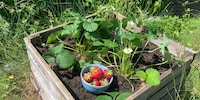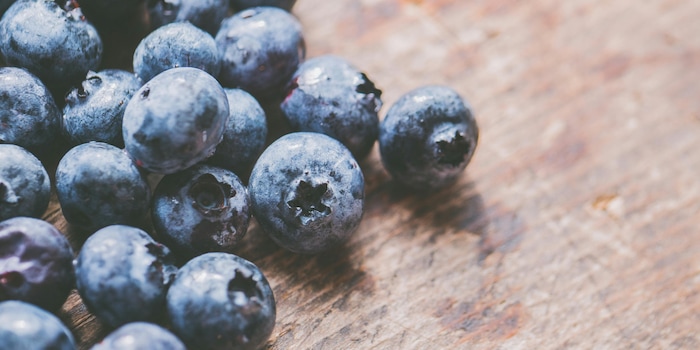
Guide
Toxins found in store-bought strawberries show you’re better off growing your own
by Anna Sandner

Berries and fresh fruit are full of vitamins, but unfortunately they’re often contaminated with pesticides and washing them with water isn’t enough. The solution? A bath in baking soda.
In addition to the abundance of vitamins and minerals, berries and fruit unfortunately all too often also contain a lot of pesticides. This protects the fruit from pests, makes it more robust for transportation and extends their shelf life in the store. However, holding them under the tap at home before eating them only does so much. Washing with water alone isn’t enough to remove the toxic residues from the fruit. Thankfully, I know a little trick.
This simple kitchen hack has also been scientifically confirmed. Researchers at the University of Massachusetts were able to show that a solution of baking soda and water effectively helps to remove harmful pesticide residues from apples.
Baking soda is used as an alternative to baking powder. As long as it’s not consumed in very large quantities, it’s harmless and is even sometimes used to treat heartburn – or to dissolve pesticide residues.
In their study, published in the Journal of Agricultural and Food Chemistry, they report that baking soda solution is better than chloride or plain water for washing off pesticides. Why? Because baking soda breaks down the chemical structure of pesticides, making them easier to rinse off. So you still need to wash them, even with baking soda: soak the fruit in the baking soda solution for around 12 to 15 minutes and then rinse thoroughly. That way you’ll eat fewer unwanted ingredients next time.
Not all pesticides are the same. Some penetrate deeper into the fruit and can’t be removed even with a baking soda bath. Still, with baking soda you can significantly reduce the residue on the surface. To be on the safe side, it helps to peel the fruit in order to remove any deep-seated residues – even if some nutrients are unfortunately lost in the process. You can also choose berries and other fruits from organic farms, which generally have a much lower pesticide load. If you want to take it into your own hands, then you can plant your own fruit on your balcony, terrace or in the garden.
Science editor and biologist. I love animals and am fascinated by plants, their abilities and everything you can do with them. That's why my favourite place is always the outdoors - somewhere in nature, preferably in my wild garden.
Practical solutions for everyday problems with technology, household hacks and much more.
Show all